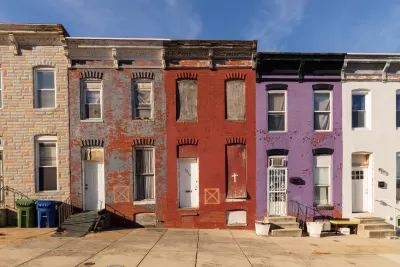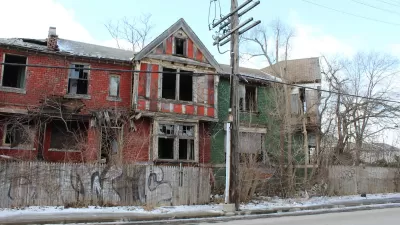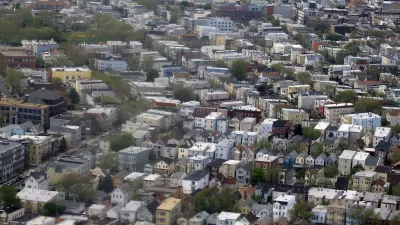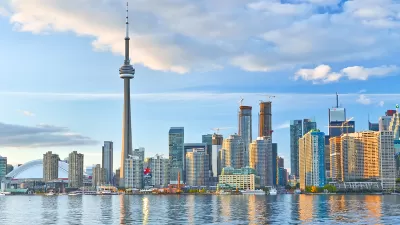The city and state are investing $3 billion in rescuing vacant residential properties to promote homeownership and reduce blight.

Baltimore officials are taking steps to transform vacant homes into usable housing to create more affordable housing and eliminate ‘blight,’ report Dillon Mullan and Dan Belson. Maryland Governor Wes Moore set a goal of transitioning 5,000 units to “homeownership or other positive outcomes” in the next five years.
The city is combining state and city funding to initiate a $3 billion effort aimed at repurposing the city’s 13,000 vacant homes over the next 15 years, with $300 million coming from an industrial development authority and tax increment financing (TIF) bonds. “The TIF structure would allow the city to borrow millions of dollars to help fund the acquisition, remediation and sale of vacant properties. The debt would be paid off with new tax revenue expected to be generated by the improved properties.” Unlike prior TIF initiatives, this proposal would cover vacant properties in a noncontiguous area to include parts of the city with high vacancy rates.
Under a new state law enacted earlier this year, Maryland jurisdictions will be allowed to create vacancy taxes to stimulate development and prevent property owners from letting vacant homes or lots languish unused.
FULL STORY: State and Local Officials Eye Vacant Houses for Repurposing

Maui's Vacation Rental Debate Turns Ugly
Verbal attacks, misinformation campaigns and fistfights plague a high-stakes debate to convert thousands of vacation rentals into long-term housing.

Planetizen Federal Action Tracker
A weekly monitor of how Trump’s orders and actions are impacting planners and planning in America.

San Francisco Suspends Traffic Calming Amidst Record Deaths
Citing “a challenging fiscal landscape,” the city will cease the program on the heels of 42 traffic deaths, including 24 pedestrians.

Defunct Pittsburgh Power Plant to Become Residential Tower
A decommissioned steam heat plant will be redeveloped into almost 100 affordable housing units.

Trump Prompts Restructuring of Transportation Research Board in “Unprecedented Overreach”
The TRB has eliminated more than half of its committees including those focused on climate, equity, and cities.

Amtrak Rolls Out New Orleans to Alabama “Mardi Gras” Train
The new service will operate morning and evening departures between Mobile and New Orleans.
Urban Design for Planners 1: Software Tools
This six-course series explores essential urban design concepts using open source software and equips planners with the tools they need to participate fully in the urban design process.
Planning for Universal Design
Learn the tools for implementing Universal Design in planning regulations.
Heyer Gruel & Associates PA
JM Goldson LLC
Custer County Colorado
City of Camden Redevelopment Agency
City of Astoria
Transportation Research & Education Center (TREC) at Portland State University
Jefferson Parish Government
Camden Redevelopment Agency
City of Claremont





























